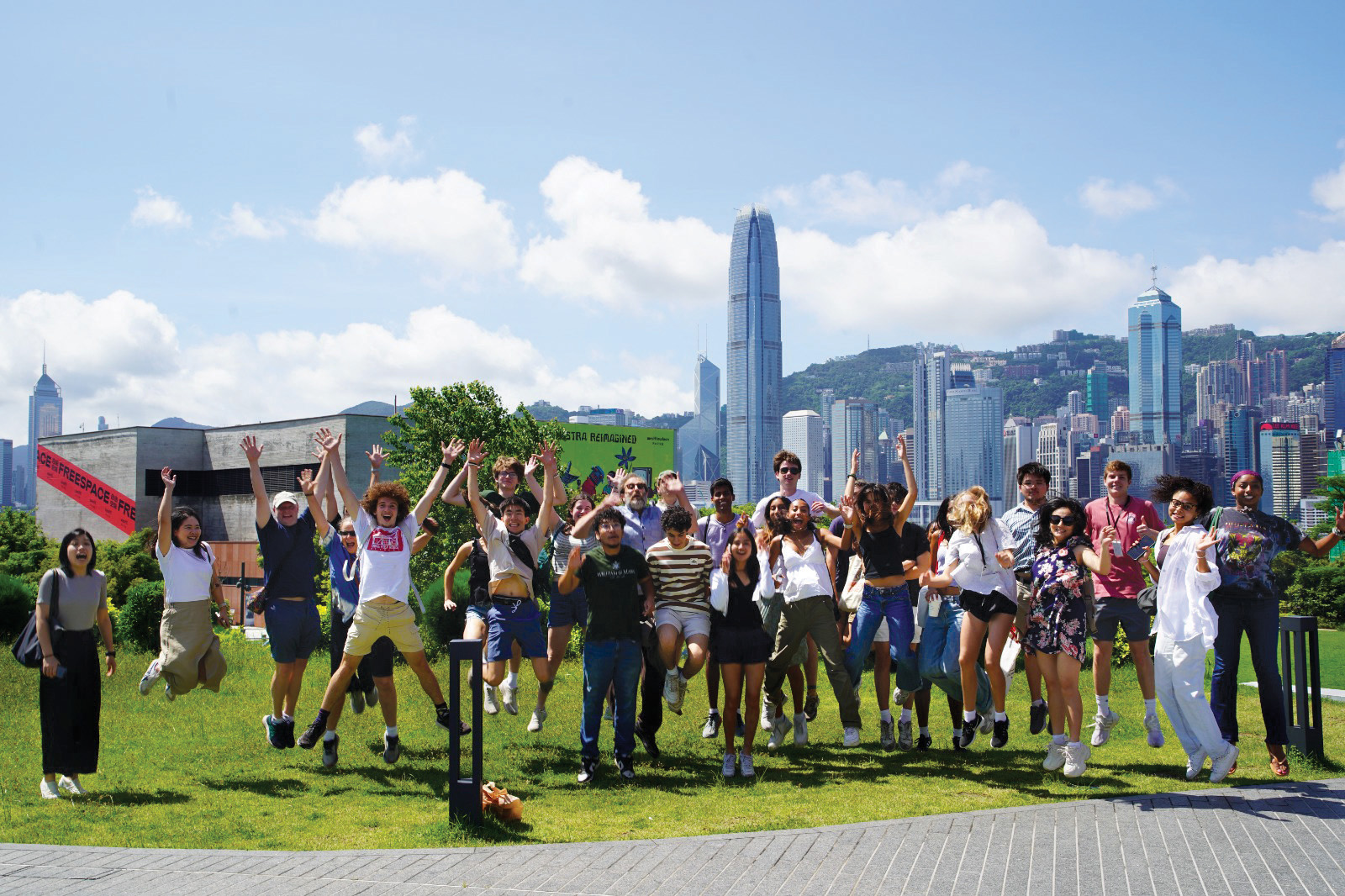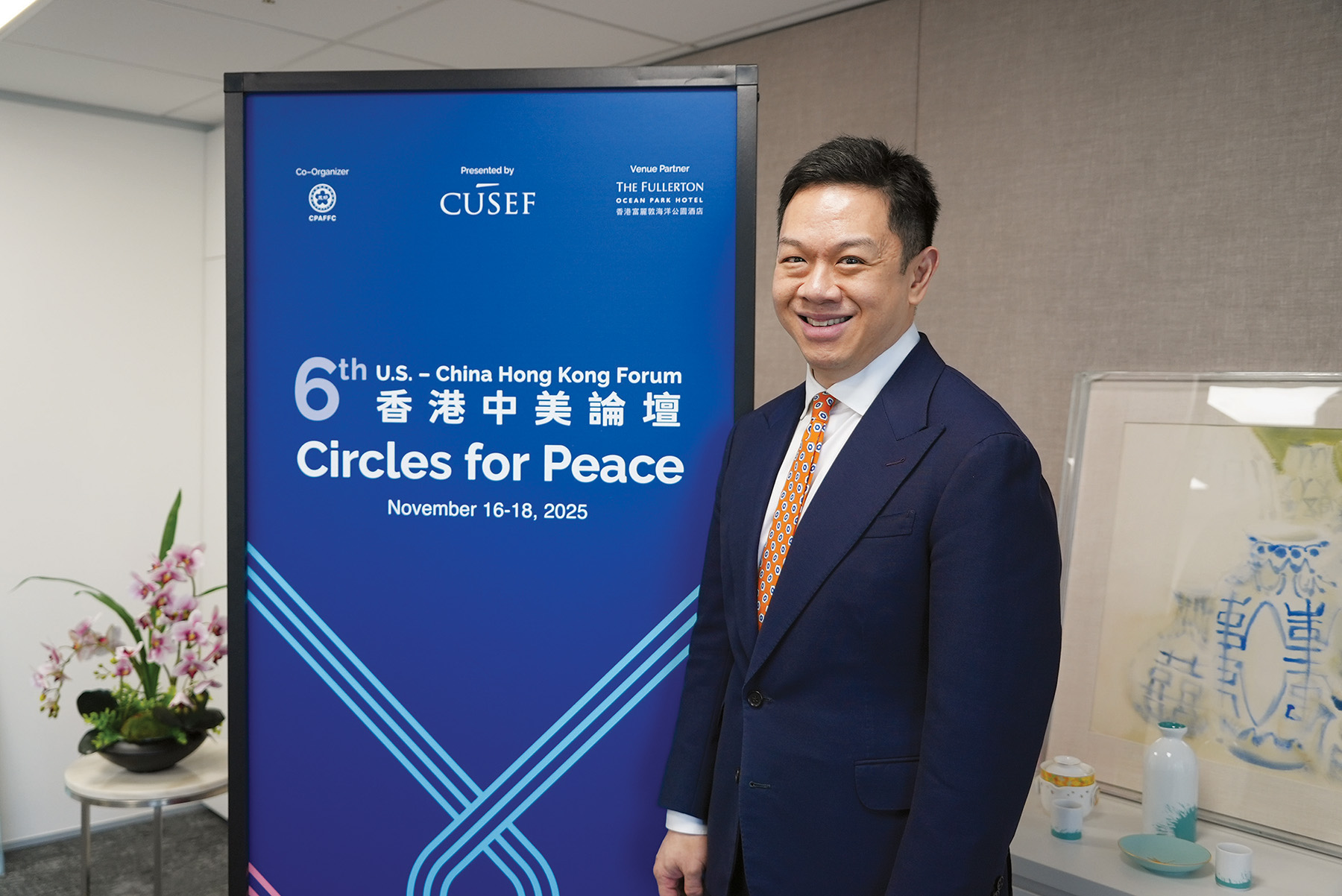
A three-day high-level forum opening today in the Hong Kong Special Administrative Region is expected to host constructive discussions among political, academic, and business leaders from China, the United States, and elsewhere, amid efforts to foster stability and cooperation between the world’s two largest economies.
Themed “Circles for Peace”, the sixth US-China Hong Kong Forum is organized by the China-United States Exchange Foundation (CUSEF), a Hong Kong-based NGO dedicated to promoting dialogue between the two countries, and co-organized by the Chinese People’s Association for Friendship with Foreign Countries.
READ MORE: Xi, Trump chart course for Sino-US ties
Xie Feng, the Chinese ambassador to the United States, will address the opening ceremony via video link. Other prominent attendees include Charlene Barshefsky, chair of the National Committee on United States-China Relations and the US trade representative from 1997 to 2001; Wang Jisi, founding president of Peking University’s Institute of International and Strategic Studies; Muhammad Yunus, Nobel Peace Prize laureate and a Bangladeshi economist; Max Baucus, a former US senator and the ambassador to China from 2014-17; and Lee Kai-fu, CEO of artificial intelligence startup 01.AI.
Delegates from Singapore, Germany, and India will also join discussions on recalibrating the China-US relationship and fostering global cooperation.
In an exclusive interview with China Daily, CUSEF President James Chau said he hopes that the forum will inject vitality into China-US relations by promoting dialogue, shared perspectives, and collaboration.

Youth take the stage
For the first time, this year’s forum features a side event focused on young people, bringing together about 20 students from both countries for discussions with each other and invited speakers.
Participants include students from leading institutions, including Peking University, Tsinghua University, and Fudan University in China, and Princeton University and Johns Hopkins University in the US. Scholars from the Yenching Academy and the Schwarzman College at Tsinghua University are also expected to share their insights.
Additionally, a special session titled “Spotlight on Youth: Building Peaceful Futures” will follow the ambassadorial- and ministerial-level discussions.
“Young people deserve not only a place at the table — they should be speaking at that table, and they must be heard,” Chau said.
Therefore, the forum will amplify young voices, helping them reach and influence global senior leaders, he added.
Beyond the forum, CUSEF has long championed people-to-people exchanges between China and the US, especially among the younger generation. Around 3,000 young Americans and Chinese have participated in its programs, which include forums for young people, and academic exchanges designed to nurture understanding and long-term friendship.
READ MORE: HK stocks extend momentum, buoyed by Sino-US trade talks outcome
Chau said that relations between the two superpowers have been “oversecuritized”, with many issues unnecessarily framed as security threats.
He said the Hong Kong forum seeks to sidestep tensions through roundtable discussions on common topics such as artificial intelligence, geopolitics, and people-to-people exchanges, and social themes like art, culture, and employment.
Chau highlighted the power of cultural experiences to promote kindness and build trust in a rapidly evolving society.
Reflecting on current dynamics, Chau likened China-US relations to “two trains moving on parallel tracks that meet very occasionally”.
He expressed hope that Hong Kong, a global crossroads that connects the Chinese mainland with the rest of the world, could serve as a platform for productive exchanges between the two nations.
Born and raised in London, Chau brings a cross-cultural perspective as an overseas Chinese familiar with both Eastern and Western societies. He described his work in China-US exchanges as showing him “the absolute magic” of collaboration — particularly its ability to drive economic growth, alleviate poverty, and combat climate change.
Chau called for a realistic and pragmatic approach among the global community to advance China-US relations in today’s geopolitical climate. “When you build friendship and trust, everything else will follow,” he said.
Contact the writer at amberwu@chinadailyhk.com


